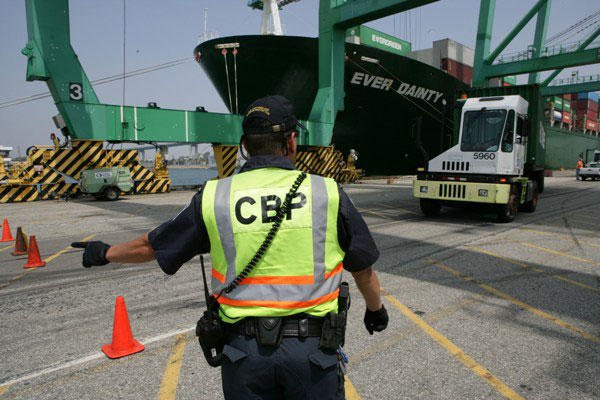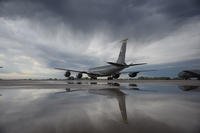Service members' vehicles shipped from overseas to stateside locations through a Defense Department contractor have started clearing U.S. Customs faster thanks to a change in how the contractor documents the vehicles shipped on ocean liners, company officials said.
Due to U.S. Customs regulations, some vehicles require more thorough inspections than others. Officials with International Auto Logistics (IAL), the government contractor responsible for the shipment of service members' vehicles, listed about 200 cars on each shipping list filed with Customs, known as a Bill of Lading. If one vehicle on that list was held for extra inspection, all 200 would be delayed as a result, they said.
For example, Customs requires that any Land Rover or Range Rover cars receive extra inspections causing delays for any cars listed on the bill with them, IAL officials said. To fix that issue the company now lists potentially problematic vehicles on their own individual bills, and puts no more than 10 vehicles on each of the other documents, officials said.
"Our mission is to deliver these vehicles on time," said Ken Quinn, senior vice president and chief financial officer of IAL in an interview with Military.com. "We know there's a lot of unhappy service members, clearly there's no doubt about that. And we know there have been a lot of issues. Things are improving."
IAL took over the personal vehicle shipping contract May 1, the start of what Defense Department officials have called the busiest vehicle moving season on record. But service members soon started complaining that their vehicles were months past their delivery dates and seemingly lost in the system. In July, 70 percent of the nearly 27,500 vehicles shipped since May 1 were delivered after their arrival deadlines, DoD officials reported.
Much of the shipping backlog, which has been cleared for the most part, Quinn said, was the result of various Customs problems. In addition to the inspection delays caused by some vehicle types, a "significant" backlog was caused by lagging paperwork from the ocean carriers, he said. And the company is also working with Customs to understand why some containers of cars with no apparent problems take longer to be cleared than others.
Service members who are still waiting for vehicles shipped in June and July have complained that an improvement in delivery times reported by U.S. Transportation Command for vehicles shipped in August makes it seem like their cars are being delayed so that IAL delivery statistics can improve.
But IAL officials said that is not the case. They said they operate under a "first in, first out" principle. Cars are pushed to service members in the order in which they are released from Customs, officials said.
"As our shipments come in and move out of the system it's always on a first in, first out system," Quinn said.
Other service members have complained that when they finally pick-up their vehicles from the processing centers no Customs paperwork is with the car. This has caused a new series of problems when they try to register the vehicle in their new state of residence.
Quinn said they are working to solve that problem by making sure the paperwork is at the processing centers before the vehicles arrive for delivery. He said that if a customer is unable to receive the Customs paperwork when he picks up his car, IAL will overnight it to his address once it is available.
"We're trying to change our procedure," he said. "We're going to try to make sure the paperwork is there."
As of Oct. 1 about 36,500 cars had been received by IAL, Quinn said. Of those, more than 21,500 had been delivered, and 2,300 were waiting pick-up.
Additionally, a call center operated by IAL to field customer issues is now receiving 300 to 350 calls a day, down from over 1,700 when it first opened in early August, he said. Of the daily calls, about 10 percent are customers who call every day, while about 5 percent are customers who call multiples times per day, he said.
Still, both lawmakers and officials with Transportation Command continue to voice concern about IAL's handling of the shipment process.
Sen. Patty Murray, D-Washington, who chairs the Senate Budget Committee, sent a letter on Sept. 30 to TransCom asking them to consider pulling the contract from IAL.
"I expect IAL's poor performance thus far will be fully considered when you determine whether or not to renew their contract, or to terminate the current contract," Murray wrote.
IAL's $350 million contract is for two years, with the option of continuing it for an additional three years, TransCom officials said. They declined to speculate on future actions surrounding the contract award.
"Members of the US TransCom leadership team met with IAL leaders last week and strongly voiced our continued frustration about the company's customer service, based on feedback from military members," said Cmdr. Dave Nunnally, a TransCom spokesman. "As we enter non-peak moving season, when more vehicles are being delivered than entering the system, we should see improvement, and we made that expectation very clear to IAL."
Quinn said he hopes the company's performance speaks for itself if when Defense Department officials decide to re-examine the contract.
"We don't control what TransCom does and doesn't do, but the other side of the equation is that our performance is going to have to speak for itself," he said. "Whatever decision TransCom makes, we understand and we hope it is selecting us going forward."
-- Amy Bushatz can be reached at Amy.Bushatz@monster.com.































